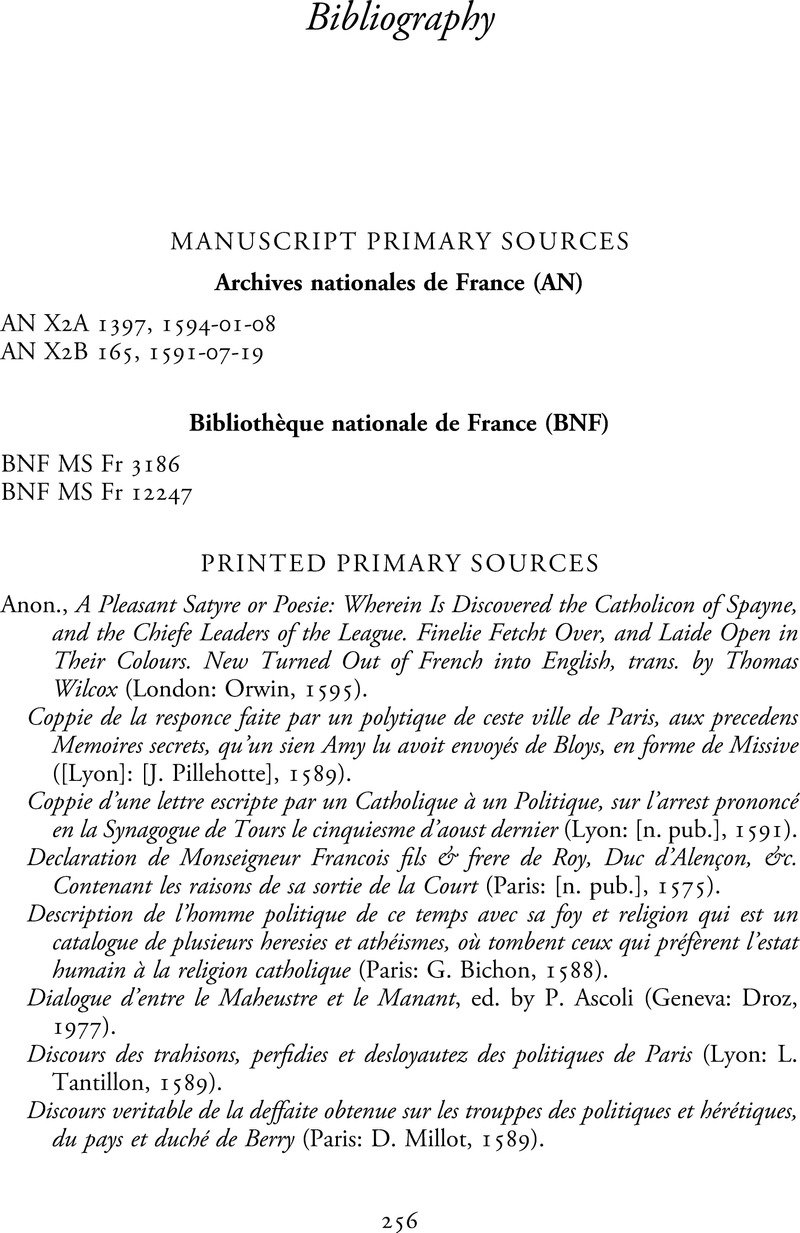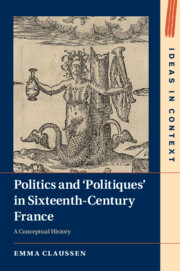Book contents
- Politics and ‘Politiques’ in Sixteenth-Century France
- Ideas in Context
- Politics and ‘Politiques’ in Sixteenth-Century France
- Copyright page
- Dedication
- Contents
- Figures
- Preface
- Acknowledgements
- Note on the Text
- Part I The Politique Problem
- Part II C. 1568–78
- Part III C. 1588–94
- Conclusion
- Bibliography
- Index
- References
Bibliography
Published online by Cambridge University Press: 08 June 2021
- Politics and ‘Politiques’ in Sixteenth-Century France
- Ideas in Context
- Politics and ‘Politiques’ in Sixteenth-Century France
- Copyright page
- Dedication
- Contents
- Figures
- Preface
- Acknowledgements
- Note on the Text
- Part I The Politique Problem
- Part II C. 1568–78
- Part III C. 1588–94
- Conclusion
- Bibliography
- Index
- References
Summary

- Type
- Chapter
- Information
- Politics and ‘Politiques' in Sixteenth-Century FranceA Conceptual History, pp. 256 - 277Publisher: Cambridge University PressPrint publication year: 2021



